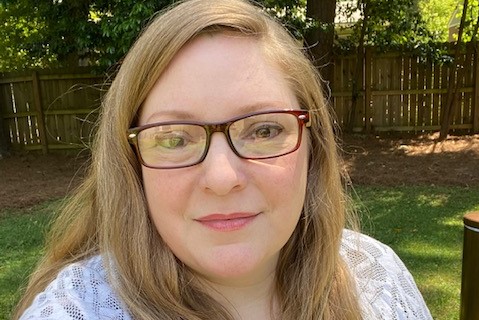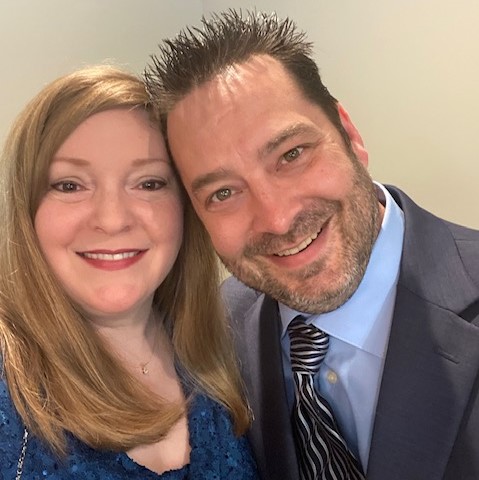
Diagnosed with stage IV breast cancer, Stacey talks about how she found hope through the expertise and treatment she has received at Northside, and she offers her advice for those newly diagnosed with cancer.
What are the events that led to your cancer diagnosis?
In October of 2019, I was putting on a bra and noticed a lump. It felt exactly like a lemon seed, the same size and everything. I made an appointment to see my OB/GYN right away and shortly after, had a diagnostic mammogram and ultrasound. Nothing showed on either test at that time. I felt comfortable just keeping an eye on it, but that turned out to be a mistake.
Fast forward a year to the fall of 2020. I noticed the lump had gotten larger, about the size of a peanut M&M®. My co-workers (yes, we discuss everything) encouraged me to go back and get a biopsy. I went back two weeks later for a mammogram and ultrasound again, and this time it showed up and looked serious. Five biopsies later, I had a breast cancer diagnosis after a PET scan and another biopsy. At age 45, I found out I already had stage IV disease.
What treatment did you receive?
I was started on Zoladex® (goserelin implant) and Xgeva® (denosumab) shots monthly and Ibrance® (palbociclib) daily. I am also participating in the AMEERA-5 trial to evaluate an oral selective estrogen receptor degrader (SERD) called amcenestrant. It is a double-blind trial though, which means I do not know whether I am taking the study medication amcenestrant or letrozole.
Describe your experience as a patient participant in a clinical trial.
Being in a clinical trial has been great. The minute my oncologist, Dr. Gena Volas-Redd said, “I have a trial for you if you’re interested, “I thought, “Yes!” It gives me a lot of hope to know that new drugs are being developed for breast cancer and being a part of the process is like paying it forward to future generations. I previously thought that trials were kind of like last resorts or that travel was required, but this is my first treatment, and it is in the city where I live. The downside is all the blood draws, which the nurses joke about, but it is not too bad.
How and where did you receive support during your treatment and recovery?
 My biggest source of support has been my husband. I am also super lucky to have my kids, parents, mother-in- law (who is a two-time breast cancer survivor), co-workers (who also include breast cancer survivors) and online support groups, including one just for people taking Ibrance® to compare experiences.
My biggest source of support has been my husband. I am also super lucky to have my kids, parents, mother-in- law (who is a two-time breast cancer survivor), co-workers (who also include breast cancer survivors) and online support groups, including one just for people taking Ibrance® to compare experiences.
Did you utilize patient support resources at Northside? If so, which would you recommend?
I spoke to a social worker at Georgia Cancer Specialists and had help finding deductible assistance to help with some of the costs that first year. I would recommend asking about financial services; there is a lot of help out there, and it can be very overwhelming.
What advice do you have for someone navigating their treatment and recovery journey?
I have so much advice!
- Advocate for yourself.
- It is hard but keep asking questions until you are satisfied with the answers.
- Choose a team that you are 100% comfortable with. You will be with them for the long haul, and it is important to feel heard and feel like your doctors are fighting for you.
- Take care of your mental health.
- Ask for help.
- Treat yourself like someone you love.
How far out are you from treatment or is treatment ongoing?
My treatment is ongoing. Since I am stage IV, I will be on treatment for life. I am 14 months in and doing well, so hopefully that will remain the case for a long time to come.
Closing Thoughts
Thank you for featuring someone with stage IV disease as a survivor story! Many of us with metastatic breast cancer feel that we are not, or will never be, survivors. My take on it is that I survived yesterday, therefore I am a cancer survivor.
*The health story shared here is for informational purposes only and is not medical advice. Patients should consult with their own physician before making medical decisions.
